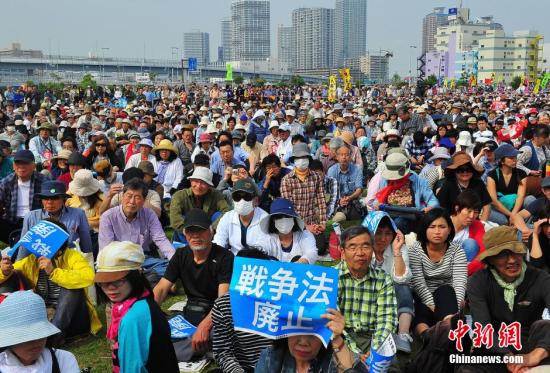China News Service, March 12th. According to Kyodo News Agency, on the 12th, the cumulative term of Japanese Prime Minister Shinzo Abe reached 3,000 days. Despite the new record, many internal and foreign issues remain unresolved.
Data Map: Japanese Prime Minister Shinzo Abe. Photo by China News Agency reporter Wang Jun
According to reports, on November 20, 2019, the cumulative number of serving days of Japanese Prime Minister Shinzo Abe reached 2887 days, surpassing former Japanese Prime Minister Katsutaro and becoming the longest serving Prime Minister in Japan's constitutional history. If the ruling regime lasts until August 24, 2020, the number of consecutive days in office will exceed the former Prime Minister of Japan Sato Eisaku, becoming the longest consecutive Prime Minister of Japan in history.
Although new records are constantly being set, numerous domestic and foreign issues and the epidemic prevention work against the new crown pneumonia epidemic have left no excitement in the official residence of Abe.
To prevent the spread of the epidemic, the Abe government has issued a series of emergency countermeasures, but the situation of epidemic prevention and control is still grim. In addition, the ability to host the 2020 Tokyo Olympics as scheduled is also a key challenge for Abe's cabinet.
Data map: Japanese people oppose constitutional amendment. Photo by China News Agency reporter Wang Jian
In terms of internal affairs, Abe's biggest goal was to amend the constitution. However, there are many obstacles to his constitutional amendment. Opposition parties such as the Constitutional Democratic Party and some Japanese people are against the constitutional amendment. In addition, the Japanese parliament is currently focusing on anti-epidemic measures, and no progress has been made in reviewing the constitution.
In terms of diplomacy, Japan and Russia have not made substantive progress on issues such as disputed territories and Japan-ROK relations.
Abe was elected as the 21st president of the Democratic Party on September 20, 2006, and replaced Koizumi Junichiro on September 26 of the same year, becoming the first post-war youngest prime minister. Although he resigned resignedly in less than a year, he was re-elected as Prime Minister of Japan in 2012 and has been reelected to this day.
Abe's current term of office will run until September 2021.

